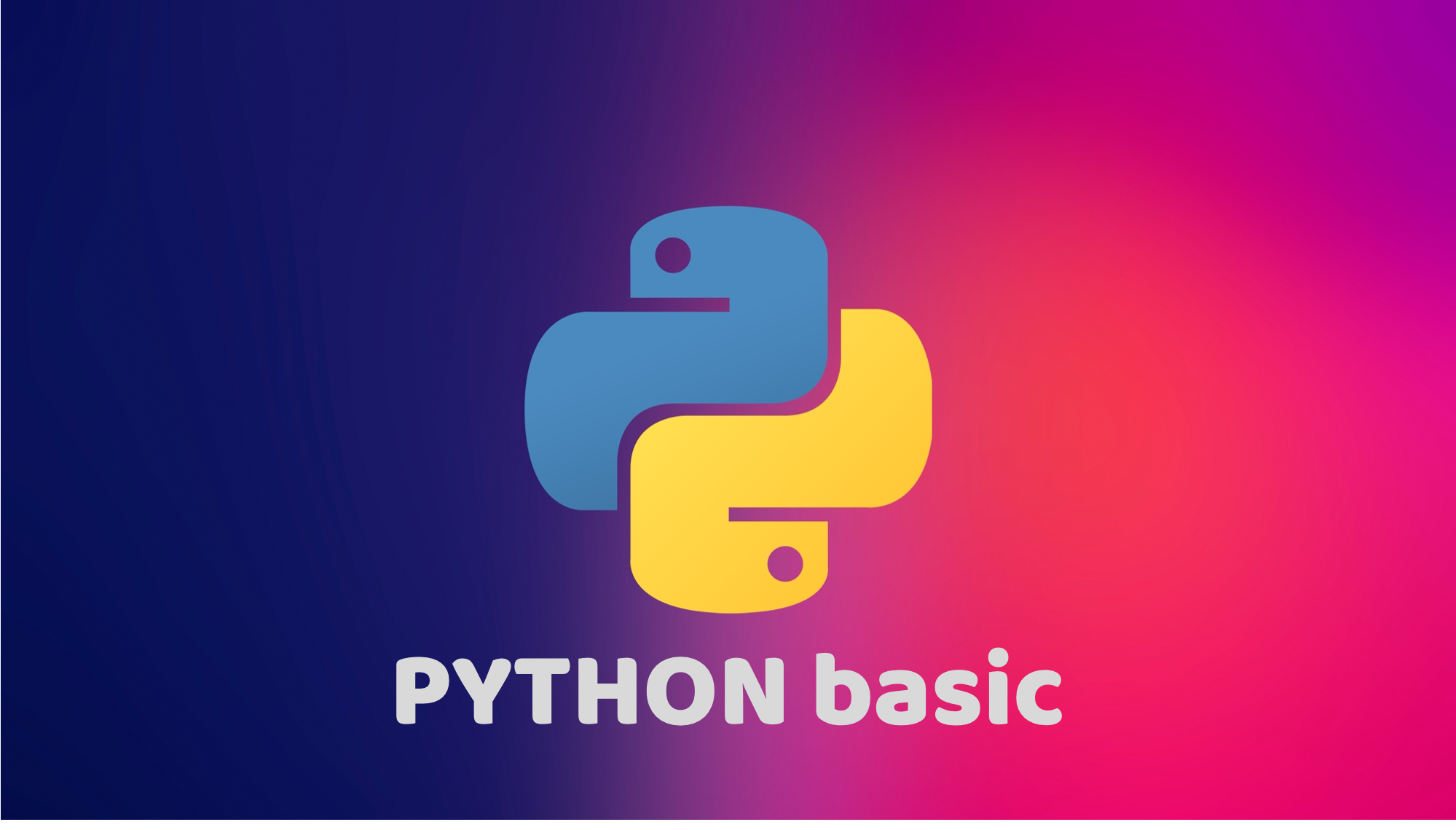🌈 제어문
🔥 조건문 : if / elif / else
🔥 반복문 : while / for
1. 조건문
1) if문 구조
- if와 else를 사용하여 참과 거짓을 판단하는 문장임
- 조건이 참이면 if문의 블록을 실행하고, 조건문이 거짓이면 else문의 블록을 수행함
- if문은 else문 없이 독립적으로 사용 가능
- if나 else문 아래 수행하는 body는 탭으로 들여쓰기함
2) 비교연산자, 논리연산자
- 비교연산자(<, >, ==, !=, >=, <=) : 크다, 작다, 같거나 크다, 같거나 작다, 같지 않다, 같다 비교
- 논리연산자(or, and, not) :
- or : 하나라도 참이면 참
- and : 모두가 참이여야지만 참
- not : 거짓일 때 참
✍🏻 python
# 비교 연산자 a = 3 b = 6 print(a>b) # False print(a<b) # True print(a==b) # False print(a!=b) # True print(a>=b) # False print(a<=b) # True# 예시1 money = 2000 if money >= 3000: print("택시를 타고 가라") else: print("걸어가라") # 실행 : 걸어가라 # 논리 연산자 # # 예시2 money = 2000 card = True if money >= 3000 or card: print("택시를 타고 가라") # 실행 : 택시타고가라 else: print("걸어가라")# x in something, x not in something # something(리스트,튜플,문자열)에 x의 포함여부 bool값으로 돌려줌 str_1 = "python" print("p" in str_1) # True print("z" not in str_1) # True # 리스트 예시 list_1 = [1,2,3,4,5] print(1 in list_1) # True print(6 not in list_1) # True # 튜플 예시 tuple_1 = ("a", "b", "c") print("a" in tuple_1) # True print("d" not in tuple_1) # True # 리스트 예시 pocket = ['paper', 'cellphone', 'money'] if 'money' in pocket: # pocket 리스트에 mone가 있으면 참 print("택시를 타고 가라") # 실행 : 택시를 타고 가라 else: print("걸어가라")# if문에서 아무것도 하지 않도록 하고 싶을 때 : pass pocket = ['paper', 'money', 'cellphone'] if 'money' in pocket: # pocket 리스트에 money가 있으면 아무것도 하지 않음 pass else: print("카드를 꺼내라")
3) elif문
- 다양한 조건을 비교하기 위해서는 if, else로는 간결하게 표현하기 어려움(계속 중첩되는 if문이 발생함)
- if가 거짓이 되었을 때, elif문의 조건이 참인지 간결하게 비교해 볼 수 있음
✍🏻 python
# if & else로만 조건문 생성 : 길어짐 pocket = ['paper', 'handphone'] card = True if 'money' in pocket: print("택시를 타고가라") else: if card: print("택시를 타고가라") # 실행 : 택시를 타고 가라 else: print("걸어가라") # elif문을 통해 위에 조건문 표현 : 똑같이 작동함 pocket = ['paper', 'cellphone'] card = True if 'money' in pocket: print("택시를 타고가라") elif card: print("택시를 타고가라") # 실행 : 택시를 타고 가라 else: print("걸어가라")# if문 간결하게 표현(if문 한줄로 표현) pocket = ['paper', 'money', 'cellphone'] if 'money' in pocket: pass # 실행 : pass(아무것도 안함) else: print("카드를 꺼내라")# 조건부 표현식 : 참인 경우 실행할 것 if 조건문 else 거짓일 경우 실행할 것 score = 100 if score >= 60: message = "success" else: message = "failure" # 위 if문 조건부 표현식으로 변환 message = "success" if score >= 60 else "failure"
4) 조건문 간소화
- 조건문에서 실행될 body가 한 줄인 경우, 줄바꿈을 하지 않고 간략하게 표현할 수 있음
✍🏻 python
score = 90 if score > 80: result = "Success" else: result = "Fail" print(result) # Success
- 조건부 표현식(Conditional Expression) : if ~ else문을 한줄에 작성할 수 있음
✍🏻 python
score = 85 result = "Succes" if score >= 70 else "Fail" print(result) # Success
5) 조건문에서의 부등호
- Python은 다른 언어와 차별점으로 조건문 안에서 수학의 부등식을 그대로 사용할 수 있음
- 예를 들어,
x > 0 and x < 20을 Python에서는0 < x < 20으로 쓸 수 있음
✍🏻 python
# 일반적인 조건문에서의 부등식 x = 15 if x > 0 and x < 20: print("x는 0 이상 20 미만의 수 입니다.") # x는 0 이상 20 미만의 수 입니다. # Python에서는 수학 부등식도 사용 가능 y = 15 if 0 < y < 20: print("y는 0 이상 20 미만의 수 입니다.") # y는 0 이상 20 미만의 수 입니다.
2. 반복문
1) while문 & for문
- 조건이 true일 때까지 body를 계속 수행함
- 반복되는 코드가 있다면 항상 반복문을 떠올리쟈!
- break 활용 : break를 만나면 반복문 탈출
- continue 활용 : continue를 만나면 해당 조건을 무시하고 다시 반복을 이어감
✍🏻 python
# 0~3까지 출력하는 if문 i = 0 if i <= 3: # now i = 0 print(i) i = i + 1 if i <= 3: # now i = 1 print(i) i = i + 1 if i <= 3: # now i = 2 print(i) i = i + 1 if i <= 3: # now i = 3 print(i) i = i + 1 if i <= 4: # now i = 4 print(i) # 실행안됨 -> if문 종료 i = i + 1 # 위에 if문 while 문으로 바꾸기 i = 0 while i <= 4: print(i) i = i + 1# 반복문 기본 v1 = 1 while v1 < 11: print("vq is :", v1) # body v1 += 1 for v2 in range(1,11): print("v2 is :", v2) # body# while문 강제로 빠져나가기 : break coffee = 10 while True: money = int(input("돈을 넣어 주세요: ")) if money == 300: print("커피를 줍니다.") coffee = coffee -1 elif money > 300: print("거스름돈 %d를 주고 커피를 줍니다." % (money -300)) coffee = coffee -1 else: print("돈을 다시 돌려주고 커피를 주지 않습니다.") print("남은 커피의 양은 %d개 입니다." % coffee) if coffee == 0: print("커피가 다 떨어졌습니다. 판매를 중지 합니다.") break# for문 강제로 빠져나가기 : break coffee = 10 for i in range(coffee): money = int(input("돈을 넣어주세요:")) if money == 300: print("커피를 줍니다.") coffee = coffee - 1 elif money > 300: print("거스름돈 %d를 주고 커피를 줍니다." % (money -300)) coffee = coffee - 1 else: print("돈을 다시 돌려주고 커피를 주지 않습니다.") print("남은 커피의 양은 %d개 입니다." % coffee) if coffee == 0: print("sold out") break# 해당 조건을 만나면 while문 무시하고 다시 반복하기 : continue # 짝수(2로 나눠서 나머지가 없음)일 때 넘어가고, 다시 반복문 진행 a = 0 while a < 10: a = a + 1 if a % 2 == 0: continue print(a)# 해당 조건을 만나면 for문 무시하고 다시 반복하기 : : continue marks = [90, 25, 67, 45, 80] number = 0 for mark in marks: number = number +1 if mark < 60: continue # makrks의 요소 중 60점 미만이면 넘어감 print("%d번 학생 축하합니다. 합격입니다. " % number)
2) range() 함수
- for문은 숫자 리스트를 자동으로 만들어 주는 range 함수와 함께 사용하는 경우가 많음
- 다른 range(num1,num2,num3)는 3개의 파라미터를 넣을 수 있음
- num1: 시작할 숫자
- num2: 끝 숫자(끝 숫자 -1까지 범위로 설정됨)
- num3: 범위에 간격 설정(step)
✍🏻 python
# # 반복문 선언1 # for data in 리스트변수: # 실행코드 # # 반복문 선언2 # for data in range(반복횟수): # 실행코드#반복문 기본1 : 리스트 내 요소를 한개씩 출력 : / <- 한줄씩 출력 for index in ["pyhton", "java", "golang"]: print(index) # python / # java / # golang #반복문 기본1 : 리스트 내 요소 수 많큼 반복 for index in ["pyhton", "java", "golang"]: print("Hello") # # Hello / # Hello / # Hello#반복문 기본2 : range함수 for i in range(3): print(i) # range(시작숫자, 끝숫자, 스텝) : 끝숫자는 포함하지 않고, 숫자를 1개만 적으면 0~적은숫자까지로 정함 for i in range(0,3,1): print(i) # 0 / #1 / #2 #0부터 9까지 숫자 중 2개 간격씩 뽑기 for i in range(0,10,2): print(i) # 0 / # 2 / 4# / # 6 / #8# 1부터 10까지 합한 값은? sum = 0 for i in range(1,11): sum += i print(sum) # 55# 활용1 marks = [90, 25, 67, 45, 80] for number in range(len(marks)): if marks[number] < 60: continue print("%d번 학생 축하합니다. 합격입니다." % (number+1)) # 활용2 : 구구단 for i in range(2,10): # ①번 for문 for j in range(1, 10): # ②번 for문 print(i*j, end=" ") print('')
3) 리스트 내포 활용
- 리스트 안에 for문을 포함하는 리스트 내포(List comprehension)를 사용하면 좀 더 편리하고 직관적임
✍🏻 python
# 리스트 내포 a = [1,2,3,4] result = [] for num in a: # 여기서 num은 1,2,3,4가 순차적으로 들어옴 result.append(num*3) # num*3을 result 리스트에 하나씩 추가시킴 print(result) # [3, 6, 9, 12]# 리스트 내포 + if문 # "if num % 2 == 0" 이 참이라면, "num * 3 for num in a" 실행 a = [1,2,3,4] result = [num * 3 for num in a if num % 2 == 0] print(result) # [6, 12]
4) while ~ not in [list] 구문
- [list] 에 포함되지 않았다면, 반복문 계속 수행
- 이 방법으로 잘못된 입력값을 받았을 경우, 반복문에서 빠져나갈수없게 할 수 있음
- list에서 1개의 값을 랜덤으로 뽑아주는 함수로 random.choice을 활용
- try 가위바위보 게임
✍🏻 python
import random n = int(input('가위, 바위, 보 게임을 시작합니다. 몇 판을 진행할까요? : ')) for i in range(n): user_select = None choice_list = ['가위', '바위', '보'] while user_select not in choice_list: user_select = input('가위, 바위, 보 중에 하나를 고르세요. : ') pc_select = random.choice(choice_list) print(f'{i+1}번째 게임 : 당신은 {user_select}, 저는 {pc_select} 입니다. ')
- 🙌 실행의 종료 조건이 분명할 때는 while문 사용
- 🙌 실행의 반복 횟수가 분명할 때는 for문 사용

